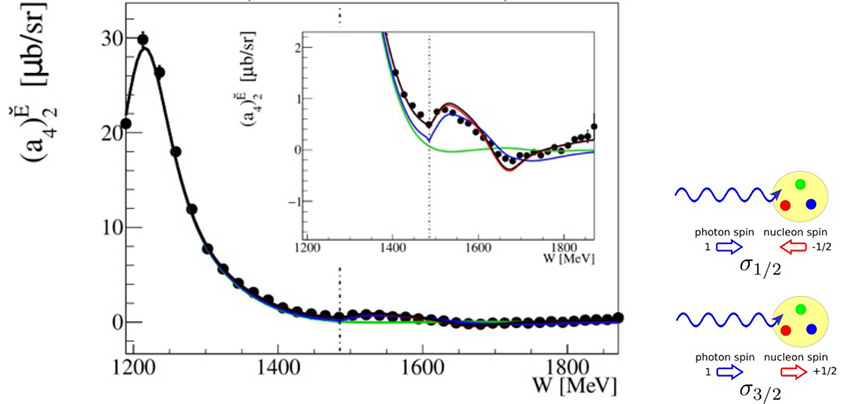Am Montag, den 28. Oktober 2024, um 12:00 Uhr c.t., findet der erste Termin unseres Physikalischen Kolloquiums in diesem Wintersemester statt.
Referent ist Prof. Farah Afzal (Rheinische Friedrich-Wilhelms-Universität Bonn) zum Thema „LIGHT HADRON SPECTROSCOPY WITH PHOTO PRODUCTION EXPERIMENTS“.
Protons and neutrons are the most well-known bound states of quantum chromodynamics (QCD).
Understanding the spectrum of their excited states provides important information on the dynamics
inside the nucleons and helps to understand the generation of hadrons as bound systems of quarks
and gluons in the non-perturbative regime of QCD. Predictions from first principles in lattice QCD or
from quark models expect a dense light baryon spectrum which is not observed in experimental
data. Experimental facilities like the A2 experimentin Mainz and the CBELSA/TAPS experiment in
Bonn use photon beams with energies of up to 3 GeV to explore the light-baryon spectrum. Here,
experimental advancements were achieved using polarized photon beams and polarized targets and by
measuring single and double polarization observables.
Higher photon beam energies of up to 12 GeV are used at the GlueX experiment located in Hall D
of Jefferson Lab, which allows to study the spectrum of light-quark mesons and in particular to
look for more complicated meson configurations like hybrid mesons that go beyond the constituent
quark model quark-antiquark configuration. Mapping out the spectrum of hybrid mesons is
especially important in understanding the role gluons play in QCD bound states.
I will give an overview of the on-going experimental efforts in the field of light hadron spectroscopy
Abstract des Vortrags von Prof. Afzal.
Die Einführung erfolgt durch Prof. Dr. Mikhail Mikhasenko.
Die Fakultät lädt alle Interessierten herzlich ein. Die Veranstaltung findet im Hörsaal HZO 20 statt.
Alle Termine des Physikalischen Kolloquiums finden Sie hier.


